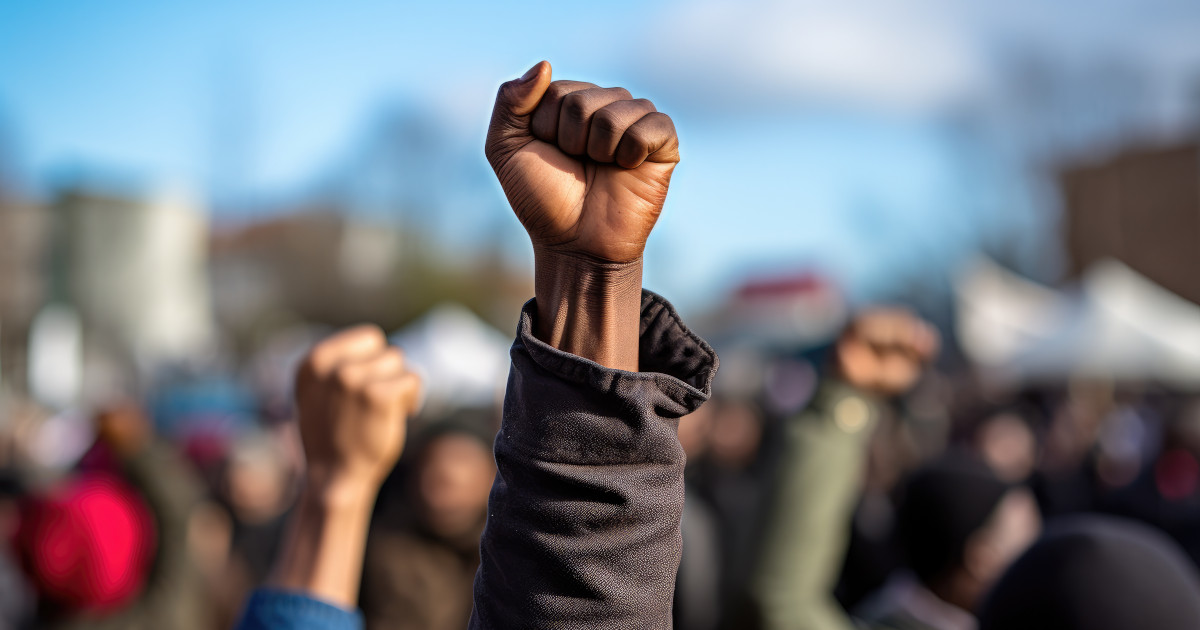Language:

What is Radicalization?
Radicalization is a complex phenomenon that is often associated with negative connotations, but it is important to understand that radicalization itself is not necessarily harmful. In essence, radicalization involves a fundamental shift in thinking and behavior, which can also be positive and lead to social progress. Consider historical figures such as Martin Luther King Jr. or Mahatma Gandhi, who pursued radical changes in the fight for social justice. It’s crucial to realize that radicalization does not automatically result in illegal or criminal activities. Only when someone resorts to extremism or violence does it become a matter of legal concern.
To better understand radicalization, it’s helpful to first look at the definitions used by various organizations.
Definition and Characteristics of Radicalization
In the Netherlands, different agencies have their own definitions of radicalization.
The General Intelligence and Security Service (AIVD) defines radicalization as: “Actively pursuing and/or supporting profound changes in society that could pose a threat to (the survival of) the democratic legal order, possibly using undemocratic methods that may undermine the functioning of the democratic legal order.“
The National Coordinator for Security and Counterterrorism (NCTV) offers a similar definition: “Radicalization is the process by which a person or group becomes increasingly willing to accept the consequences of the struggle for a society that conflicts with our democratic legal order.“
No Legal Definition
There is no specific legal definition of radicalization in Dutch law. This is likely because radicalization itself is not a criminal offense, but rather a process that can lead to extremism or terrorism, which are illegal.
The absence of a legal definition gives the government and security agencies some flexibility in interpreting and addressing radicalization, as the phenomenon can manifest in various forms and evolve over time. Although there is no formal legal definition, the AIVD and NCTV definitions are used as guidelines for policies and interventions aimed at preventing and countering radicalization in the Netherlands.
The definitions provided by the AIVD and NCTV offer a foundation for understanding radicalization, but to fully grasp the concept, it’s essential to identify its specific characteristics. These traits help in recognizing radicalization processes in practice and give insight into how it manifests in individuals and groups. Let’s now look at the key characteristics of radicalization:
- Increasingly extreme beliefs: For instance, someone who increasingly believes that violence is the only solution to societal problems.
- Social isolation: A person becomes more isolated from family and friends, associating only with like-minded individuals.
- Willingness to use violence for ideals: Someone who is ready to resort to violence against those who think differently to defend their ideology.
Forms of Radicalization
Radicalization can manifest in various forms, each with its own ideological background and objectives. Some prominent forms include:
- Jihadism: An extremist interpretation of Islam that justifies violence to establish an Islamic state. Followers seek the global implementation of Sharia law and often view the West as an enemy.
- Left-wing extremism: Based on radical left-wing ideologies such as communism or anarchism. Objectives often include overthrowing the capitalist system and creating a classless society, sometimes through violent revolution.

- Right-wing extremism: Characterized by ultranationalism, racism, and
xenophobia. Followers aim for an ethnically homogeneous society and oppose
immigration and multiculturalism, often showing a willingness to use violence
against minorities.
In addition to these prominent forms, there are also other, lesser-known types of radicalization. These are often smaller in scale but no less deserving of attention. Examples include eco-extremism, anti-government extremism, or radicalization around specific social issues like anti-abortion or animal rights. Though these movements may be less visible, they can become just as dangerous if they lead to extremism or violence. Therefore, it’s crucial to remain vigilant against all forms of radicalization, regardless of their size or visibility. Any ideology that promotes violence or undermines the democratic legal order is a potential threat to society and deserves serious attention from security agencies and policymakers.
The Radicalization Proces
The radicalization process is a complex and often gradual transformation that an individual or group can undergo. While each case is unique, researchers and security experts have identified a general pattern that is often observed. This process consists of various phases that may overlap and do not always follow a fixed order. It’s important to understand that not everyone goes through all the phases and that intervention at any stage is possible and desirable. The four main stages identified in the radicalization process are activism, political involvement, extremism, and ultimately, the willingness to use violence. Let’s take a closer look at these stages:
- Activism: In this phase, someone becomes engaged in societal issues and expresses this through legal activities such as protests or strikes. The person feels a strong need for change but remains within the bounds of the law.
- Political involvement: The person becomes more deeply involved in a particular ideology or movement. They may join political groups or actively campaign for their beliefs. At this stage, actions still occur within democratic frameworks.
- Extremism: The ideas and beliefs become increasingly radical. The person may begin to reject mainstream society and only associate with like-minded individuals. They may start justifying undemocratic means to achieve their goals.
- Willingness to use violence: In the most extreme phase, the individual is willing to use violence to realize their ideals. They may plan violent actions or even commit acts of terrorism.
It’s important to note that not everyone who radicalizes goes through all these phases, and early intervention can often be effective in preventing further radicalization.
Factors Contributing to Radicalization
Various circumstances can make people susceptible to radicalization. Social dissatisfaction, often fueled by economic inequality or political frustration, can provide fertile ground for extreme ideologies. Experiences of discrimination and exclusion can reinforce feelings of alienation, making individuals more receptive to radical ideas that offer a sense of purpose.
Family issues, such as an unstable home environment or lack of parental guidance, can make young people vulnerable to radical influences. Additionally, mental health problems can play a role; individuals struggling with depression, anxiety, or identity issues may seek an outlet or solution in extremism.
The search for identity and belonging is a crucial factor, especially among young people. Radical groups tap into this by offering a strong sense of group identity and a feeling of purpose and meaning.
Online Radicalization

In recent decades, radicalization has significantly shifted from mainly physical environments to the digital world. While extremist ideas were once spread through personal meetings, printed media, and closed gatherings, much of the radicalization now occurs online. This shift to the internet has accelerated the process of radicalization and greatly expanded the reach of extremist messages. The accessibility and anonymity of the internet have created a new dynamic in the way radical ideas are shared and followers are recruited.
In this digital age, social media and online platforms play a crucial role in spreading extremist ideologies. The speed and reach of online communication allow radical thoughts to reach a large and diverse audience in a short time. Extremist groups have quickly recognized the advantages of this digital environment and effectively use various online strategies to spread their message and attract new followers.
One concerning phenomenon is “flash radicalization,” where individuals radicalize rapidly due to the anonymity and lack of oversight online. This process is exacerbated by so-called echo chambers: online spaces where like-minded individuals reinforce each other’s extreme beliefs without opposition.
Prevention and Intervention
Preventing radicalization requires a variety of strategies. Education on media literacy should be central in schools, teaching young people to critically evaluate online information. Promoting critical thinking helps individuals see through and counter extremist narratives.
Encouraging diverse social contacts is crucial to counteract the formation of isolating echo chambers. By exposing young people to different perspectives and cultures, their worldview broadens, making them less susceptible to extremist ideas.
Early detection and support for vulnerable youth is essential. This requires a coordinated approach where education, youth care, and local authorities work together to identify at-risk groups and provide appropriate support. By focusing on these preventive measures, society can become more resilient to the threat of radicalization.
Radicalization in Perspective
It’s essential to emphasize that radicalization itself is not illegal or criminal. In a democratic society, people have the right to hold radical ideas and strive for fundamental changes, as long as this is done within the law and with respect for the rights of others. Radical thinkers have often contributed to significant social progress throughout history.
In this article, however, we have focused on the radicalization process that can lead to extremism or violence. We examined the stages and factors that can contribute to a form of radicalization that threatens the democratic legal order or could result in illegal activities. It’s this trajectory — where radical ideas transition into a willingness to use violence or break the law — that demands attention from security agencies and society as a whole.
The distinction between radical thinking and dangerous radicalization is sometimes subtle, but essential for maintaining both our safety and our fundamental freedoms. By gaining insight into the radicalization process, we can intervene more effectively when necessary, while simultaneously protecting the right to free speech and political diversity.
This nuance highlights the importance of a balanced approach to dealing with radicalization, where vigilance for potential threats goes hand in hand with respecting democratic principles and civil rights.
How can I assist you?
As a Radicalization and Terrorism Expert (RTE), I offer valuable support and advice to individuals and organizations seeking to prepare for the challenges of radicalization and terrorism. Whether you need training, workshops, or strategic advice, I am happy to help you gain insight into these complex topics and how to effectively address them. Feel free to contact me through my contact page for more information or to schedule a consultation. Together, we can work toward a safer and more resilient environment.
